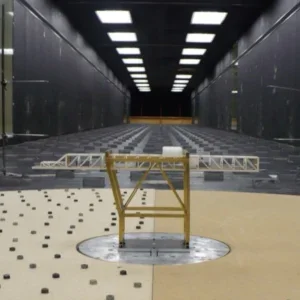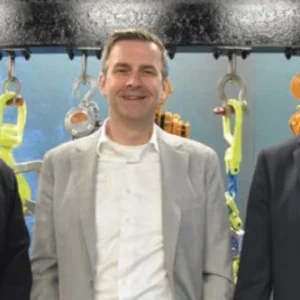Thus, in two short years, 12 workers lost their lives unnecessarily due to the primary use of overhead cranes. Between 1992 and 2002, 49 overhead crane operators were killed, for a total of 61 workers in 11 years. Additional data shows another 76 deaths occurred as a secondary source of injury between 1992 and 2002.
“Lost time accidents and disabilities are often more costly to employers than fatalities,” points out Kevin Cunningham, senior vice president of NationsBuilders Insurance Services Inc. (NBIS), Chicago, Illinois, a major insurer of crane owners. It is this realisation that has turned the attention of more and more employers towards the qualifications of their crane operators and, hence, to certification, he says.
Bruce Stemp, company safety director for Lampson International, Kennewick, Washington, notes that his firm has adopted the CCO overhead crane certification programme developed and administered by the National Commission for the Certification of Crane Operators (NCCCO) as part of its overall company safety plan.
“Although our work primarily requires mobile hydraulic and conventional cranes, our employees are often required to operate overhead cranes,” Stemp says. “Overhead crane operations clearly pose risk to our workforce, and training and CCO certification provide good risk management.”
Joe Collins, crane department supervisor of Zachry Construction Corporation, agrees. Zachry has more than 30 overhead cranes and hoists in operation, with as many as 40 different crane operators. Collins states that Zachry adopted CCO’s overhead crane operator certification programme as part of its voluntary protection programme with OSHA.
“In 2005, Zachry was recognised as a super-star site for excellence in safety,” says Collins. “We are reviewed annually by OSHA and must show continuous improvement in safe practices.”
Steve Crawford, a crane inspector for Zachry, says: “Because CCO certified operators understand government regulations, rigging practices, maintenance requirements, and have technical knowledge, as well as advanced operator skills, our risks are significantly lowered.” He continues: “Our CCO certification programme provides evidence to OSHA we make efforts above and beyond to keep our crane operators safe.”
Private sector
With states typically allowing overhead crane operation to go unregulated, it has been up to the private sector to provide evidence of crane operator qualifications. The NCCCO was formed by the industry in 1995 as a non-profit organisation to develop and administer certification programmes to the craning industry. Since March 1996, more than 250,000 examinations have been administered to as many as 45,000 crane operators throughout the US.
The widespread adoption, endorsements and recognition of the Commission’s successful certification programme for mobile crane operators helped lead the overhead crane industry in requesting a similar programme to be specifically designed for overhead crane operators.
The direct financial support for programme development came through contributions from overhead crane manufacturers and the Crane Manufacturers Association of America (CMAA) which partnered with NCCCO in this important safety project.
In January 2003, NCCCO’s board of directors agreed to the development of the overhead crane operator certification programme. An overhead crane task force was formed, representative of a broad cross-section of overhead crane specialists from across the US. Programme development began in April 2003.
Validity was paramount
“One of our most important objectives during our meetings was to develop written and practical examinations that closely track the knowledge and skills used by overhead crane operators every day on a real job site,” explained Fred Simmons, Foley Material Handling Co., Ashland, Virginia. Simmons is chairman of the overhead crane management committee. “Validity was a critical concept as we developed our exams,” says Simmons.
During the entire process, NCCCO called upon its existing test developer and test administrator, International Assessment Institute (IAI), for psychometric assistance. This collaboration was essential for the development of a fair, valid and reliable certification programme that was also legally defensible, said NCCCO president, John Kennedy, Manitowoc Crane Group, Manitowoc, Wisconsin.
A prime concern was to ensure it was affordable for employers to adopt as a third-party accredited programme to enhance their current crane safety operations. So, for a fee that equates to a little over 2 cents an hour during the five-year period of certification (less if the operator is already certified through another CCO programme), an operator can be certified as to his or her knowledge and ability.
Employers are taking advantage of a process whereby they are able to establish their own facilities for the administration of the practical exams. In addition, employer representatives can become accredited examiners eligible to administer CCO practical examinations to the company’s personnel through successful participation in one of NCCCO’s practical examiner workshops. Written examinations can be scheduled at most locations at any employer or organisation’s convenience.
Goal to reduce accidentsAbout the author
Danny Thiemens works for the National Commission for the Certification of Crane Operators (NCCCO) as
a marketing consultant for the CCO overhead crane programme, with special responsibility for its Washington state operations.






